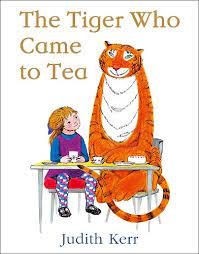Reading curriculum
Reading - The English programme of study
To enable children to read fluently and accurately for pleasure. To become fluent
readers with the skills to access, engage with and enjoy a wide range of texts.
In keeping with The English programme of study, pupils at Victor Seymour Infants’
School are taught reading in a variety of ways.
These include:-
- sharing texts, both English based and cross-curricular - pupils experience, challenging texts through shared reading.
- being taught a sight vocabulary of tricky words e.g. they, saw, come etc.
- daily phonics sessions- learning letter sounds and names, segmenting and blending for decoding and spelling and other spelling strategies such as using the long vowel sounds.
- guided Reading – Group reading around a shared book for more confident readers.
- individual children reading with the Class Teacher and the Teaching Assistant
The emphasis of teaching shifts from phonic work to comprehension skills as reading
ability develops.
All pupils have a banded reading book, which they take home.
Parents are encouraged to support their children’s reading development by reading this
and other texts with them on a daily basis.
Early readers will follow books from the scheme Unlocking Letters and Sounds. They are
banded according to the level of difficulty and are closely matched to their phonetic
ability. Pupils move on to the next band when judged ready by their teacher.
More confident readers will go onto books from a variety of reading schemes to
consolidate their knowledge. They will have access to a wide variety of more
challenging texts within our ‘Free Reader’ collections in classes. Their teachers closely
monitor their selections and the children record these in their reading records. Once a
book is finished, the ‘Free Reader’ child is asked to complete a book review about that
book.
In Foundation Stage N, all children choose and take home a book each week to share
with their Parents / Carers. This is accompanied by a drawing book which the child uses
to record something they like etc. about the story/poem book / non-fiction book.
Each individual teacher keeps Reading Records in class reading record books/folders.
Staff have a beginning and end of year progress chart for recording attainment and
achievement (see appendix) which they monitor to ensure all children are progressing as
they should.
Pupils are encouraged to talk about their recent reading and, in particular, to share
discoveries of ‘good reads’ with others.
In Y1 and Y2, when not part of a Guided Reading Group, children independently
participate in planned Reading and Literacy-based tasks which support and develop
their reading skills.
In all classes, children regularly listen to their teachers reading quality texts.
The application of reading is positively encouraged throughout our daily activities, when
children are asked, for example, to read instructions, notices, big book texts and any
focused text of that session.
Parents/Carers are encouraged to participate in their child’s reading by hearing them
read for 5 to 20 minutes each day at home. Parents/Carers receive regular information
through staff writing comments in each child’s Reading Record Book as well as through
parents’ evenings and informal meetings.


